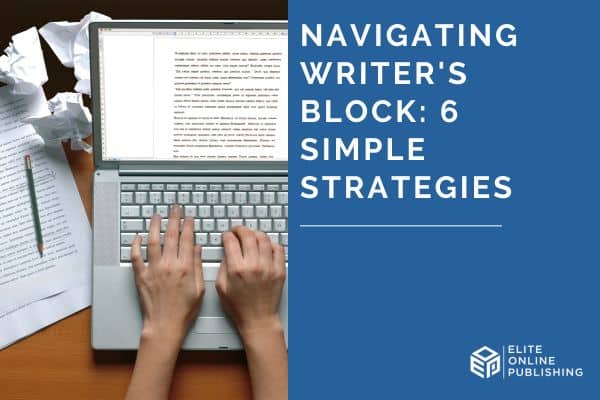Every writer encounters writer’s block at some point in their career. Those times when you just can’t seem to get anything onto the page. It’s not uncommon for any creative to face writer’s block, even if they’ve been writing for decades. Luckily, writer’s block isn’t forever. But if you’re currently dealing with a bout of writer’s block and looking for a way to overcome it, you have come to the right place! Let’s dive into some practical tips on pushing through writer’s block and getting back on track!
1. Create A Task Outline
Have you ever faced a project as big as a mountain? It can feel almost impossible to start when you consider all you need to do, even if you want to do it. A simple but effective trick is to break up that massive task into micro-tasks. When writing your book, this is an essential first step in the writing process and helps keep you on track. Having an outline of everything you want to do for a project can help you identify where you need to start or where you can move forward.
Example Task: Write the conclusion of my book
Outlined Task:
- Brainstorm ideas
- Identify the main purpose
- Create conclusion outline
- Gather resources/references
- Write the first draft
- Revise draft
By simplifying the process into manageable steps, you can tackle any task that comes your way!
2. Change Your Environment
Changing your environment can give you a fresh perspective. Encountering different sights, events, and experiences can reignite your creative spark. Here are some of our favorite ways to get inspired:
- Library: It’s free and a great place to interact with many types of people.
- Cafe: Nothing helps you feel better than trying a new food!
- Park: Enjoying fresh nature is a sure way to feel refreshed and ready to try a new angle.
3. Read for Inspiration
While at the library, consider picking up a few books to inspire your writing. Or check out one of Elite Online Publishing’s books to help you move forward. Reading creative works by our favorites, writing guides, or works from new groundbreaking authors can lead to unlikely sources of inspiration. Try a different author or read something from an unread genre to generate new ideas.
4. Free Writing

5. Talk It Out
Hearing an idea out loud can give you the perspective you need. Talk the problem out with a friend, relative, coworker, or fellow author. Whoever you talk to doesn’t need to be an expert in writing or have great ideas. Just the act of verbalizing your ideas can provide clarity. Moreover, talking with someone trusted can give you the boost you need to get back on track and stay motivated throughout your writing journey.
6. Writing Prompts
When you’re stuck, writing prompts can be the spark that reignites your creativity. They offer a way to bypass the daunting blank page by providing a structured starting point that can lead to unexpected and exciting writing directions. Whether it’s a single word, a sentence, or a scenario, these prompts encourage your mind to explore new ideas without the pressure of a broader narrative. You can find a variety of prompts online tailored to different genres, or challenge yourself by creating your own based on themes relevant to your current project. Engaging with prompts helps overcome blocks and expands your creative prowess by pushing you to think outside your usual patterns.
Remember: You’ve Got This!
Overcoming writer’s block is a part of every writer’s journey. While it can be frustrating, the strategies outlined above provide a roadmap to help you navigate through it. Remember, every writer is different, and part of dealing with writer’s block is figuring out what works best for you. Whether it’s breaking down tasks, changing your environment, engaging in free writing, reading for inspiration, talking it out, or using writing prompts, each strategy offers a unique avenue to reignite your creative engine. Keep experimenting with these techniques, and soon you’ll find yourself back in the flow, your words filling the pages once again.
*Note, we may receive commission from linked products.
FAQ
Q1: How long should I spend on free writing to effectively overcome writer’s block
Free writing can be highly effective when done in short, focused bursts. Typically, spending 10-15 minutes is sufficient to bypass your inner critic and get ideas flowing. However, feel free to adjust the duration based on how the session progresses and your comfort level.
Q2: Are there specific types of reading material more effective for inspiring writing?
While any reading can be inspiring, literature that resonates with you personally or is relevant to your writing project can be particularly stimulating. If you’re writing fiction, exploring novels in your genre might spark ideas. Reading related articles, essays, or biographies for non-fiction can provide new insights and perspectives.
Q3: Can writer’s block be a sign that I need to take a longer break from my project?
Yes, persistent writer’s block might indicate the need for a longer break. Sometimes, stepping away from your project for a few days or even weeks can help clear your mind and rejuvenate your enthusiasm for the work. Use this time to engage in different creative activities or rest so you can return to your writing with a fresh perspective and renewed energy.





0 Comments